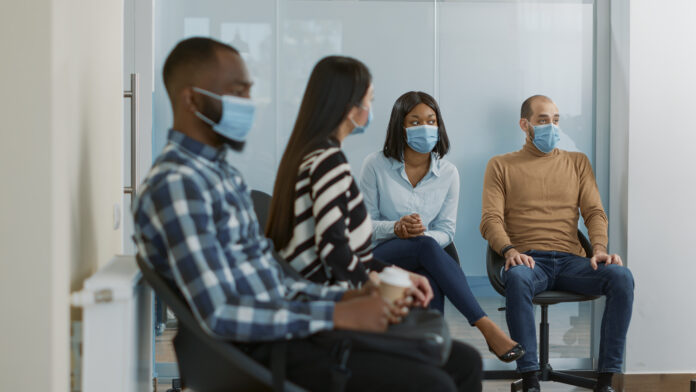By
Newswise — A study study published today reports that BIPOC individuals who were infected with COVID-19 experienced greater negative aftereffects in health and work loss than did similarly infected white participants.
Despite similar symptom prevalence, Hispanic participants compared to non-Hispanic participants and BIPOC participants compared to white participants had more negative impacts following a COVID-19 infection in terms of health status, activity level and missed work, the authors wrote.
The findings appeared in the journal Frontiers in Public Health. The authors investigated the longer-term impacts of acute COVID-19 infection across ethnic and racial groups. They longitudinally followed 2,402 U.S. individuals first infected between 2020 and 2022.
“We want to understand what is driving these differences, with the goal of advancing health equity after infection,” said lead author Dr. Kelli O’Laughlin, associate professor of emergency medicine and of global health at the University of Washington School of Medicine.
The authors surmised that some of these negative outcomes among BIPOC participants — when compared with those of non-Hispanic and white participants — may be associated with socioeconomic disparities.
“We found that several minority populations reported worse overall health, lower activity levels or more missed work months after infection. While we don’t know what caused these different impacts, we know that these populations can have a harder time accessing health care, which may complicate their recovery,” added Kari Stephens, a professor of family medicine and of biomedical informatics and medical education at the University of Washington School of Medicine.
“Certain demographic groups might be overrepresented in front-line work industries, where they had no option to work from home to reduce their risk of infection,” O’Laughlin said.
Other differences across population groups might stem from the lack of health insurance, mistrust of the medical establishment, cultural or institutional racism, medical deserts, or the lack of safe parks or green spaces where study participants live, she said.
Study participants were asked to record their symptoms from a list of 22, including loss of taste, shortness of breath and sore throat. While the investigators found few symptomatic differences across the groups at three- and six-months after infection, there were significant health effects and work loss among BIPOC populations.
Among the findings:
- Hispanic participants were about twice as likely as non-Hispanic counterparts to self-report fair or poor health and much lower activity levels at three months. These differences, however, were no longer present at six months.
- Compared with white participants, those who identified as “other/multiple race” were nearly twice as likely to report fair or poor health and describe that they were somewhat or much less active at three months. These differences persisted at 6 months. The “other/multiple race” group included individuals identifying as American Indian or Alaska Native, Native Hawaiian or Pacific Islander or selecting two or more races.
- Compared with white participants, Asian participants’ chances of reporting fair/poor health was similar at three months, but Asian participants were more likely to report fair/poor health at six months.
- Reports of more than five missed workdays was similar across all race groups at three months; at six months, however, reports of missed work were much higher among Black participants (by almost three times) and other/multiple race participants (by more than two times).
The researchers described these differences in the context of accounting for other demographic factors that affect populations, such as social determinants of health, substance use, preexisting health conditions and COVID-19 vaccination status.
“We found a difference in health status by ethnicity and race after acute SARS-CoV-2 infection,” said O’Laughlin.
She and other UW Medicine researchers have been studying the health consequences of COVID-19 under the Innovative Support for Patients with SARS-CoV-2 Infections, or INSPIRE, a multisite group funded by the Centers for Disease Control and Prevention.
O’Laughlin said she hopes the findings will inform effective and equitable health interventions for underserved populations who are still managing the aftereffects of COVID-19 infections.
INSPIRE is a federally funded collaboration of eight major academic medical centers, including UW Medicine, seeking to better understand the long-term effects of COVID-19. The participants self-reported their symptoms in a standardized questionnaire. The INSPIRE group has been studying COVID-19 since the first documented U.S. case was found just outside the Seattle area in January 2020. This is the seventh study released by the group.
This work was supported by the Centers for Disease Control and Prevention, National Center for Immunization and Respiratory Diseases (75D30120C08008).
Image: DC Studio/Freepik



































